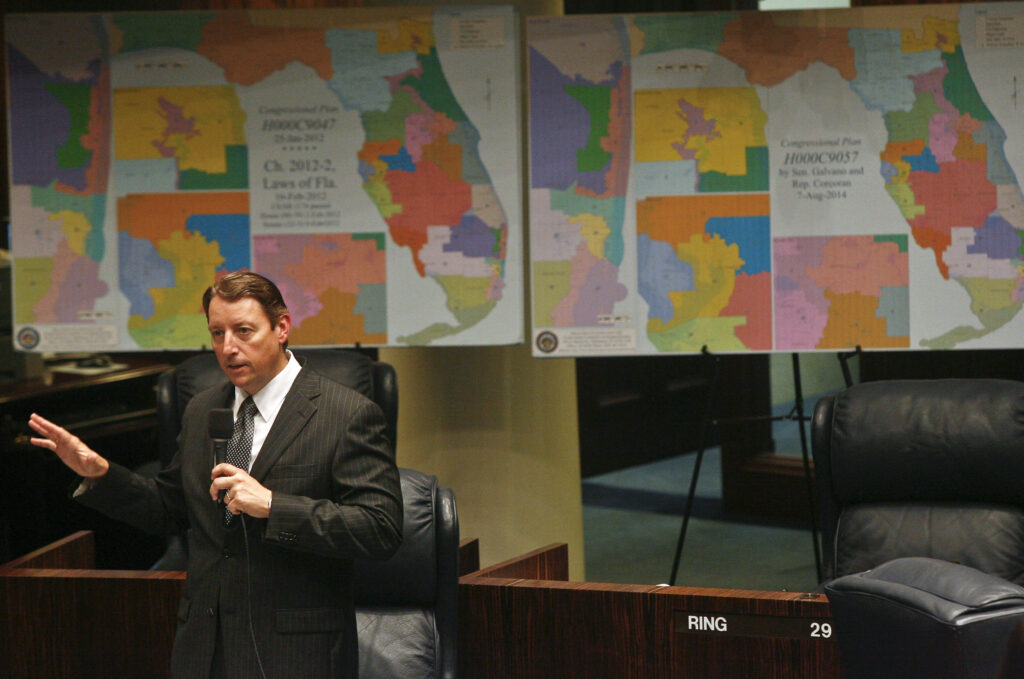New Agreement Renews Potential for Black-Performing Florida Congressional District
WASHINGTON, D.C. — On Friday, Aug. 11, the parties in a state-level lawsuit challenging Florida’s congressional map entered into an agreement that could potentially pave the way for the state to resurrect a Black-performing district in North Florida before the 2024 primary elections.
Although the joint stipulation does not guarantee the reinstatement of a Black-performing congressional district in North Florida, pro-voting advocates are optimistic that the agreement is a step in the right direction: “This settlement agreement works towards limiting the damage done by the Governor and legislature when they chose to disregard standards set forth by the highest court of the state of Florida, our State Supreme Court. In essence, this agreement establishes a path forward toward the revitalization of the voices of Florida’s citizens,” stated Cecile M. Scoon, co-president of the League of Women Voters of Florida in a press release.
The lawsuit from which the agreement stems, Black Voters Matter v. Byrd, originally alleged that Florida’s congressional map violates the state constitution’s Fair Districts Amendment by diminishing the ability of Black voters to elect their candidates of choice and by intentionally favoring the Republican Party. Under the Fair Districts Amendment’s “non-diminishment standard,” districts cannot be drawn in a manner that “diminishes” the ability of minority voters to elect their preferred candidate.
Florida’s challenged congressional map, which was championed by Gov. Ron DeSantis (R), dismantled the state’s Black-performing 5th Congressional District formerly held by Rep. Al Lawson (D) by cracking Black voters across four separate districts. Per the Friday agreement, the Republican-controlled Legislature and secretary of state agreed with the plaintiffs that “[n]one of the Enacted districts in North Florida are districts in which Black voters have the ability to elect their preferred candidates.” Following the agreement, Lawson stated that he would consider running for his former seat if the previously configured 5th Congressional District was restored.

As a result of the joint stipulation, the plaintiffs agreed to limit the scope of their claims to focus on the diminishment of Black voting power in North Florida, meaning that the plaintiffs dropped their claims pertaining to other districts in the areas of Tampa Bay and central Florida. In addition, the plaintiffs agreed to voluntarily dismiss their claims concerning partisan gerrymandering. The outstanding legal questions in the case center around whether the Florida Constitution’s “non-diminishment” provision violates the Equal Protection Clause of the U.S. Constitution and whether the plaintiffs will have to meet certain preconditions used in federal cases for the non-diminishment standard to apply.
Prior to the agreement, a trial in the case was set to begin on Aug. 21. The parties in the case have asked the court to push back the original trial date, and to instead hold arguments over the remaining claim on Thursday, Aug. 24. After holding arguments, a Florida judge will decide whether or not to strike down the state’s current congressional map. Friday’s agreement stipulates that if the plaintiffs prevail and the decision is not reversed on appeal by the Florida Supreme Court, the Legislature will have the first opportunity to enact a remedial map; however, if the plaintiffs object to the Legislature’s map, the court may step back in to oversee remedial proceedings.
A separate legal challenge to Florida’s congressional map is simultaneously pending in federal court and is set to go to trial on Sept. 26.